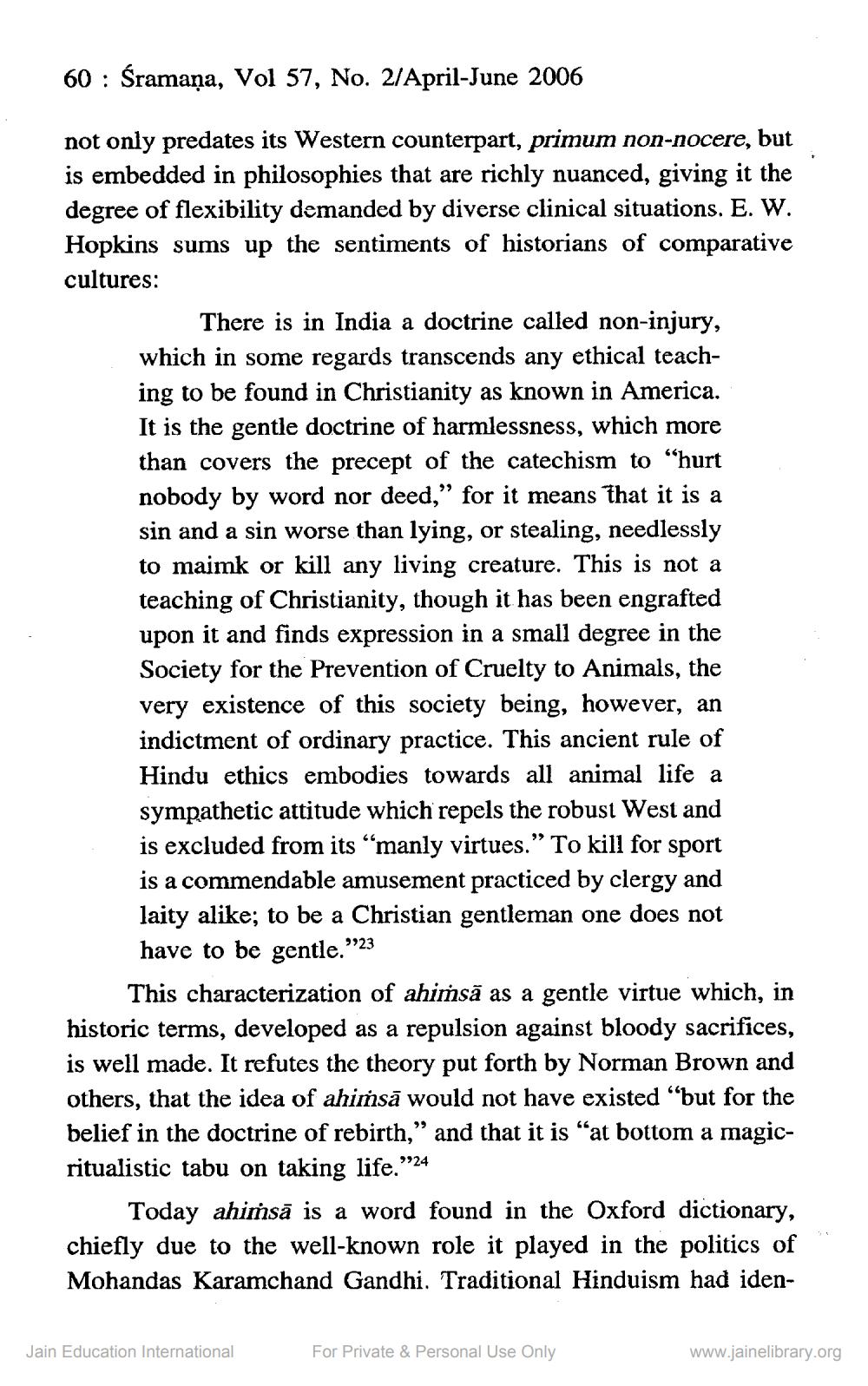________________
60 Śramana, Vol 57, No. 2/April-June 2006
not only predates its Western counterpart, primum non-nocere, but is embedded in philosophies that are richly nuanced, giving it the degree of flexibility demanded by diverse clinical situations. E. W. Hopkins sums up the sentiments of historians of comparative cultures:
There is in India a doctrine called non-injury, which in some regards transcends any ethical teaching to be found in Christianity as known in America. It is the gentle doctrine of harmlessness, which more than covers the precept of the catechism to "hurt nobody by word nor deed," for it means that it is a sin and a sin worse than lying, or stealing, needlessly to maimk or kill any living creature. This is not a teaching of Christianity, though it has been engrafted upon it and finds expression in a small degree in the Society for the Prevention of Cruelty to Animals, the very existence of this society being, however, an indictment of ordinary practice. This ancient rule of Hindu ethics embodies towards all animal life a sympathetic attitude which repels the robust West and is excluded from its "manly virtues." To kill for sport is a commendable amusement practiced by clergy and laity alike; to be a Christian gentleman one does not have to be gentle."
9923
This characterization of ahimsa as a gentle virtue which, in historic terms, developed as a repulsion against bloody sacrifices, is well made. It refutes the theory put forth by Norman Brown and others, that the idea of ahimsa would not have existed "but for the belief in the doctrine of rebirth," and that it is "at bottom a magicritualistic tabu on taking life."24
Today ahimsa is a word found in the Oxford dictionary, chiefly due to the well-known role it played in the politics of Mohandas Karamchand Gandhi. Traditional Hinduism had iden
Jain Education International
For Private & Personal Use Only
www.jainelibrary.org




